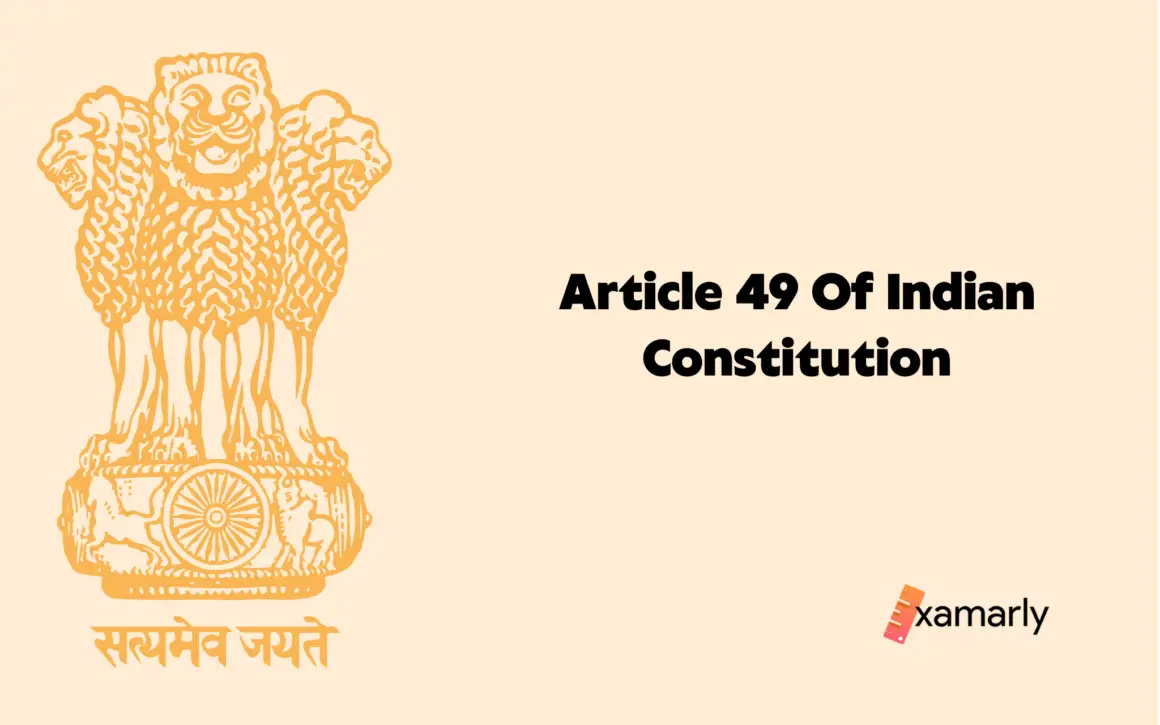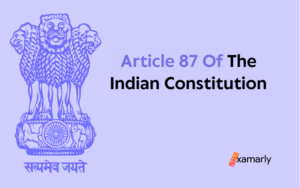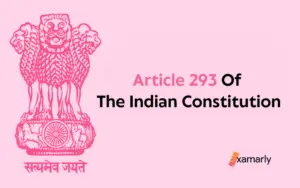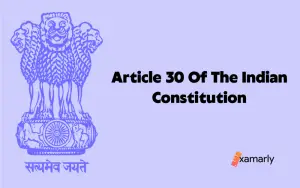- The Constitution of India outlines several essential and basic principles that the government must adhere to when passing laws. These are referred to as the Directive Principles of State Policy.
- These values seek to guarantee that all citizens are treated equally by the government. These also help to ensure that the citizens have access to necessities like food, compulsory education, and healthcare.
- These principles are defined in Article 49 of the Indian Constitution. Let us now gain an in-depth understanding of Article 49 and understand its significance for Indian citizens.
Table Of Contents
- What Does Article 49 Of The Indian Constitution Say?
- Background of Article 49 Of The Indian Constitution
- Article 49 Of The Indian Constitution In Relation With The Directive Principles Of State Policy
- Key Directives Of Article 49 Of The Indian Constitution
- Significance Of Article 49 Of The Indian Constitution
- Summing Up
- FAQs
What Does Article 49 Of The Indian Constitution Say?
- Article 49 of the Indian Constitution states “49. Protection of monuments and places and objects of national importance. It shall be the obligation of the State to protect every monument or place or object of artistic or historic interests, declared by or under law made by Parliament to be of national importance, from spoliation, disfigurement, destruction, removal, disposal or export, as the case may be.”
- This article reflects the values of Directive Principles of State Policy. To advance social and economic fairness, the government must abide by these principles.
- In the article, it is said that it is important to preserve monuments, locations, and artwork that represent the history and art of our nation.
Related – Protection of monuments and places and objects of national importance
Background of Article 49 Of The Indian Constitution
- Article 49 of the Constitution of India, 1950, was finalized from Draft Article 39.
- This Draft Article was debated on November 24, 1948.
- The 7th Amendment Act of the Indian Constitution in 1956 added ‘Under law made by Parliament’.
- There was no doubt that the preservation of history was of utmost importance. The pressing debate was whether it was justified for the Parliament to be bestowed with the authority to make such declarations. In the present day, this authority has been increased by the Constitution.
Article 49 Of The Indian Constitution In Relation With The Directive Principles Of State Policy
- The Directive Principles of State Policy are covered in Part IV of the Indian Constitution. These principles are enumerated in various Indian articles. These include Articles 36 to 51.
- These principles advocate the concept of a welfare state. This means that the State must try to provide its citizens with a decent standard of living. These principles are vital to the nation’s governance and are non-justifiable.
- They apply to Union as well as State Governments. They also include all the other authorities that may come under the definition of ‘State’.
- In this manner, Article 49 encapsulates the essence of the Directive Principles of State Policy. This article falls under the category of Directives based on Liberal and Intellectual Principles.
Read Also – Article 48 Of The Indian Constitution
Key Directives Of Article 49 Of The Indian Constitution
- Article 49 targets the protection and preservation of monuments, places, and objects that hold historical and artistic relevance.
- The State should take action to safeguard historical landmarks and monuments. These works of art are vital to the nation’s tourism industry. They boost economic development as well. By preserving them, the nation will be able to draw more domestic and foreign tourists. In doing so, it would also pave way for experiencing economic growth.
- Article 49 articulates the directive principles. These are crucial for maintaining India’s history, culture, and heritage. The government can use them as a guide. It would facilitate ensuring that all the significant historical places and artifacts are protected in the coming times.
Significance Of Article 49 Of The Indian Constitution
- Article 49 of the Indian Constitution addresses the preservation of the nation’s historical and artistic treasures and heritage. This article contends that it is essential to recognize the national significance of Indian monuments, objects, and places.
- A nation’s architectural and historical heritage is extremely important. It plays a crucial role in drawing tourists and fostering economic development. The number of international tourists increases as there are more tourist destinations to visit. As a result, the nation will benefit financially. Simultaneously, it will also acquire foreign currency.
Summing Up
- The Indian Constitution specifies a set of rules for the administration to adhere to. These are known as the Directive Principles of State Policy.
- With the help of these values, all Indians strive to live in a society that is more just and equal. Their basic rights are protected and the standard of life is worth appreciating.
- Not all of the principles have been fully implemented. They, nonetheless, serve as an essential road map for the future of the nation.
- Article 49 as an effective provision plays its role in ensuring that Indian monuments, places, and objects of natural and historical significance are not hampered and can be maintained for years to come.
FAQs
Q. Which Draft Article was instrumental in the making of Article 49?
Article 49 of the Constitution of India, 1950, was finalized from Draft Article 39.
Q. When was Draft Article 39 debated?
Draft Article 39 was debated on November 24, 1948.
Q. Under which Constitutional Amendment is Article 49 included?
Revision of Article 49 was included in the 7th Amendment Act of the Indian Constitution, 1956.
Q. When was the Constitution (7th Amendment) Act, 1956, enforced?
The Constitution (7th Amendment) Act, 1956, was enforced on November 1, 1956.






